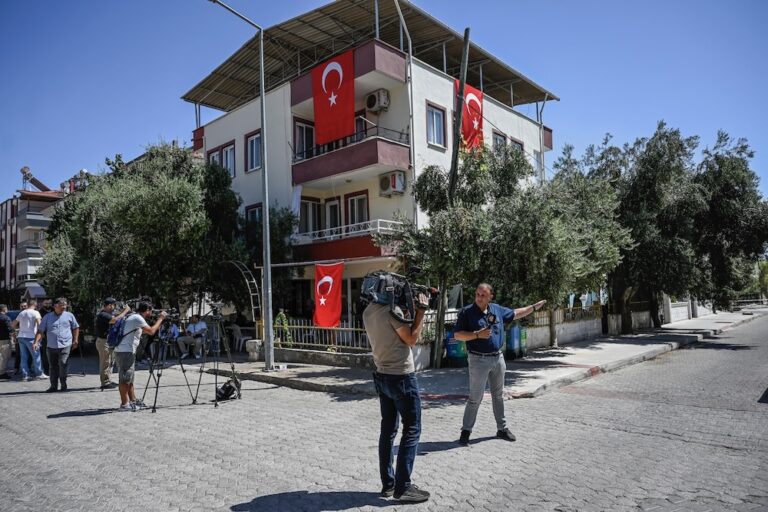(BIANET/IFEX) – In two separate cases, free expression is being suppressed in relation to Kurdish language, culture and politics. In one case, this suppression is the result of actions by Turkish authorities, in the other, of actions by a Kurdish political leader. Kiyasettin Aslan, a trade union representative based in Kilis, in southeastern Turkey, is […]
(BIANET/IFEX) – In two separate cases, free expression is being suppressed in relation to Kurdish language, culture and politics. In one case, this suppression is the result of actions by Turkish authorities, in the other, of actions by a Kurdish political leader.
Kiyasettin Aslan, a trade union representative based in Kilis, in southeastern Turkey, is on trial for using the letter “w” in two newspaper articles. Article 222, based on Atatürk’s clothing and alphabet reform in 1928, was cited as ground for the legal action.
In Turkey, the use of non-Turkish words, for instance from French and English, is common in books and in the names of workplaces and shops. While this use of foreign words was never a case for the judiciary, the use of Kurdish words and letters has been penalised for years, citing Law No. 1353 on the Acceptance and Application of Turkish Letters. This law was conceived on 1 November 1928 and was incorporated into the Turkish Penal Code as Article 222, under the heading “Hat and Turkish Letters”.
Now Aslan, the chair for Kilis province of the Office Workers’ Union (BES), is on trial for using the words “Newroz” and “Kawa” in articles published in two local newspapers. The “w” does not exist in the Turkish alphabet, though this has not stopped people from writing Internet addresses starting with “www” or the private “Turkish Show” television channel from broadcasting.
In an article published in the local “Huduteli” newspaper on 20 March, entitled “May the Newroz Fire Never Go Out”, and in another article in the “Kent” newspaper of 24 March, entitled “Fire and Iron”, Aslan wrote about the Newroz Festival.
Prosecutor Serkan Özkan is demanding that the Kilis Criminal Court of Peace sentence Aslan to two to six months’ imprisonment. The trial will begin on 27 December.
In a separate development, Kurdistan Workers Party (PKK) leader Cemil Bayik has named and threatened Kurdish-origin politicians and intellectuals who have expressed ideas contradicting the official PKK line. In reaction to this threat to freedom of expression, peace and human rights activists have signed a statement. The statement includes the following passages:
“Articles and statements written on 16 and 21 November 2007, and said by Cemil Bayik, a known high-level leader of the PKK, to convey the official views of the organisation, were published on Internet websites in several languages and were also cited in media outlets. The names of some Kurdish-origin human rights activists, democrats and politicians were given and these people were identified as targets . . .
“We as peace, democracy and human rights activists strongly condemn the fact that those who have a different approach from the PKK, who suggest different solutions and who oppose the use of violence, were openly named, categorised as “so-called Kurds” and “collaborators and traitors”, and identified as targets for perpetrators of violence. We consider this a moral, political and legal crime. We perceive these threats as an attack and hostile attitude towards all of us.
“. . . We have experienced painful examples of what happens when people are targeted for thinking differently. The wound of Hrant Dink’s murder still hurts inside us. We still carry the shameful stain of three of our citizens in Malatya having their throats cut and being slain. . .
“In these latest statements, the PKK uses the same methods; we announce that we will consider any attack on those targeted as an attack on us all. We call on Turks, Kurds, all citizens, people who have struggled for peaceful solutions for years, and on institutions and foundations to stand alongside those who have been targeted and to take a clear position against the violence directed at these peoples’ rights to life and to freedom of expression.”


